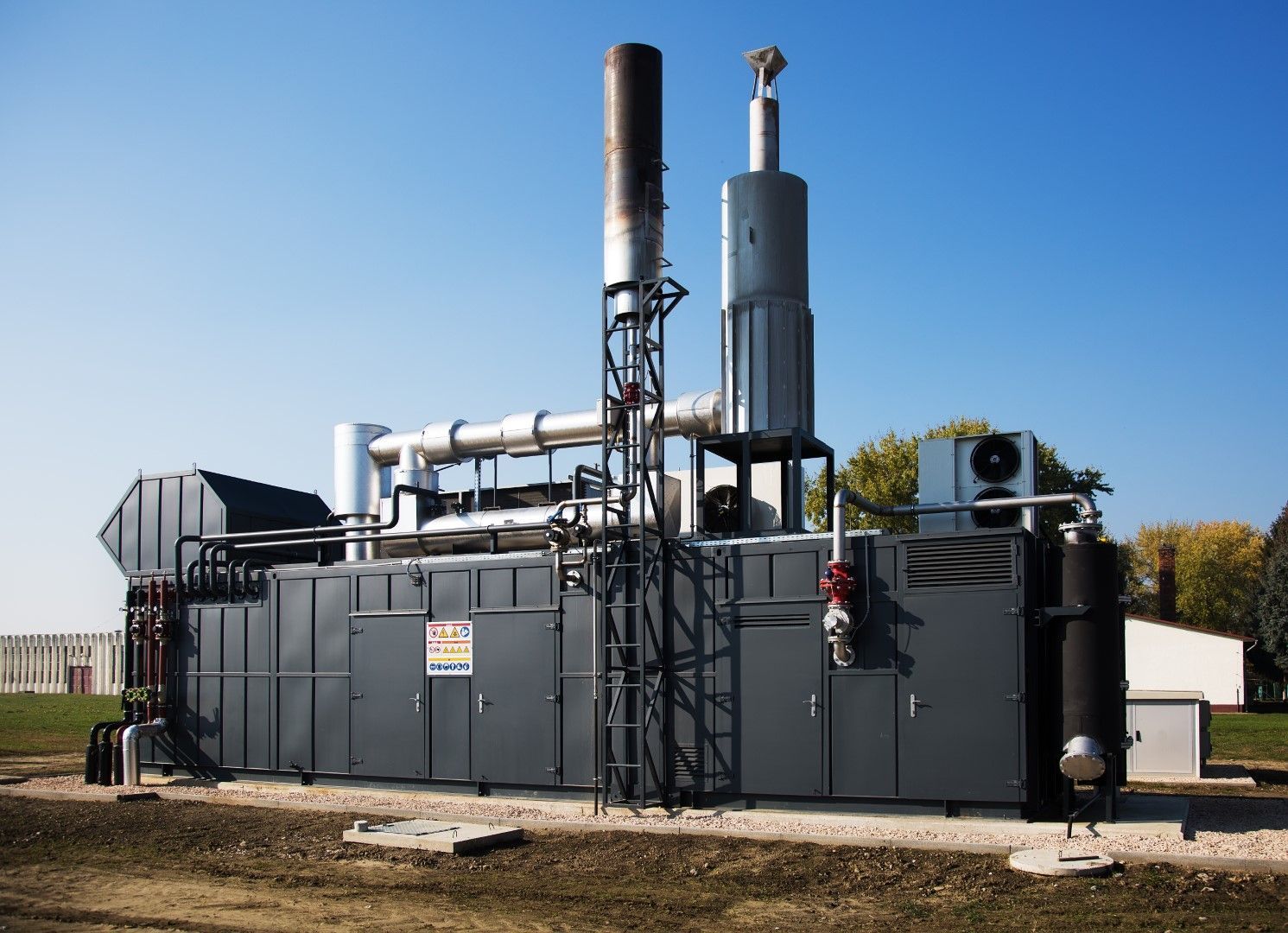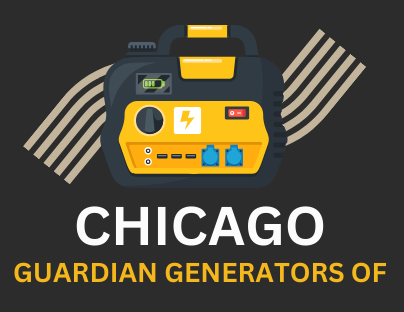Electric Generators in Chicago IL
Electric generators are devices that convert mechanical energy into electrical energy. They serve as a reliable power source when the main grid fails or when there is no access to the grid. Essentially, a generator provides backup power to keep essential systems running, whether for homes, businesses, or critical infrastructure. Generators come in various sizes and types, from portable units for small-scale needs to larger, stationary systems designed to power entire buildings. They are especially valuable in areas prone to power outages or for operations that require continuous power supply.
Key Components
Understanding the components of an electric generator helps in appreciating how it functions. Here are the main parts:
- Engine: This is the heart of the generator, converting fuel into mechanical energy.
- Alternator: The alternator transforms mechanical energy into electrical energy.
- Fuel System: This system stores and supplies fuel to the engine. It includes the fuel tank, fuel pump, and fuel lines.
- Voltage Regulator: This component ensures that the electrical output remains stable and within safe limits.
- Cooling System: Keeps the generator from overheating during operation.
- Exhaust System: Directs exhaust gases away from the generator.
- Lubrication System: Reduces friction and wear on the engine components.
- Control Panel: Allows users to operate and monitor the generator's performance.
How It Works
The operation of an electric generator starts with the engine, which runs on fuel like gasoline, diesel, or natural gas. As the engine operates, it spins the alternator. The alternator then generates alternating current (AC) by moving a magnetic field through a coil of wire.
The voltage regulator ensures the output voltage is stable and adjusts as needed. The electrical current produced is then routed through the control panel, which allows users to manage and monitor the generator's functions. The power is then distributed to the electrical systems that require it.
Installation
Proper installation is crucial for the efficient and safe operation of a generator. Here’s a basic overview of the process:
- Site Preparation: Choose a suitable location for the generator, ensuring it is on a stable surface and adequately ventilated.
- Positioning: Place the generator on a level surface, preferably with a concrete pad to prevent movement and water damage.
- Connecting Fuel: Install the fuel system, ensuring all connections are secure and leak-proof.
- Electrical Wiring: Connect the generator to your home's electrical system or the designated circuits using a transfer switch to prevent backfeeding.
- Testing: Run the generator to ensure all components are working correctly and that it integrates seamlessly with your electrical system.
It’s recommended to have a professional handle the installation to comply with local codes and ensure safety.

Maintenance and Lifespan
Regular maintenance is essential for extending the lifespan of your generator and ensuring its reliability. Key maintenance tasks include:
- Regular Inspections: Check the generator periodically for signs of wear or damage.
- Oil Changes: Change the oil according to the manufacturer’s recommendations.
- Fuel System Maintenance: Inspect and clean the fuel system to prevent clogs and ensure smooth operation.
- Air Filter Replacement: Replace air filters as needed to keep the engine running efficiently.
- Battery Maintenance: Check the battery regularly and keep it charged.
With proper care, a well-maintained generator can last anywhere from 10 to 30 years, depending on the type and usage.
Electrical Safety Tips
Safety is paramount when dealing with electrical generators. Follow these tips to avoid accidents:
- Never Operate Indoors: Generators emit carbon monoxide, so always use them in well-ventilated, outdoor areas.
- Use Proper Extension Cords: Ensure cords are rated for the generator’s output and are in good condition.
- Keep the Generator Dry: Protect the generator from rain and snow to prevent electrical hazards.
- Turn Off the Generator Before Refueling: Avoid potential fires or explosions by turning off the generator before adding fuel.
- Install a Transfer Switch: This prevents backfeeding into the electrical grid, which can be dangerous for utility workers.
Troubleshooting Common Issues
Generators may encounter various issues. Here’s how to address some common problems:
- Generator Won’t Start: Check the fuel level, ensure the battery is charged, and inspect the fuel lines for clogs.
- No Power Output: Verify connections and ensure the circuit breaker isn’t tripped. Check the alternator and voltage regulator for faults.
- Overheating: Ensure the cooling system is functioning properly and that there is adequate ventilation around the generator.
- Strange Noises: Listen for unusual sounds that may indicate mechanical issues. Inspect the engine and components for damage or wear.
Regular maintenance and prompt troubleshooting can help prevent major issues and extend the life of your generator.
For expert advice, installation, or maintenance services for
electric generators in Chicago, IL, contact us today. Our team of professionals is here to help you ensure a reliable power supply for your home or business. We offer comprehensive services to meet all your generator needs and keep your power running smoothly. Don’t wait until an outage occurs—reach out now to learn more about how we can assist you.
Types of Energy Sources Used in Electric Generators

Electric generators play a crucial role in supplying power to homes, businesses, and industries. They convert various forms of energy into electrical energy, ensuring that we have a reliable source of electricity. Understanding the different types of energy sources used in electric generators is important for selecting the right generator for your needs. This article explores the main energy sources that power generators, providing insight into how each one functions and its benefits. Electric generators can be powered by several types of energy sources, each with its own advantages and applications. Here are the most common energy sources used:
Fossil Fuels
Fossil fuels, such as gasoline, diesel, and natural gas, are widely used in electric generators. These fuels are burned to create heat, which is then used to produce steam or drive turbines that generate electricity. Diesel generators are particularly popular in industrial settings and as backup power sources due to their reliability and high power output. However, fossil fuels are non-renewable and contribute to environmental pollution.
Renewable Energy Sources
Renewable energy sources are becoming increasingly important due to their sustainability and lower environmental impact. Common renewable energy sources include:
Solar Energy
Solar panels convert sunlight directly into electricity using photovoltaic cells. Solar generators harness this energy by using solar panels to generate power, making them a clean and renewable option. They are ideal for areas with abundant sunlight and are often used in residential and remote locations.
Wind Energy
Wind turbines capture the kinetic energy of the wind and convert it into electrical energy. Wind-powered generators are typically used in wind farms, where multiple turbines work together to produce large amounts of electricity. This method is efficient and environmentally friendly, though it depends on consistent wind conditions.
Hydro Energy
Hydroelectric generators use the energy of flowing water to produce electricity. By diverting water through turbines, they generate power that can be used for various applications. Hydroelectric power is a reliable and renewable source of energy, often used in large-scale power plants.
Biomass
Biomass generators use organic materials, such as wood, agricultural residues, or animal waste, as fuel. These materials are burned or converted into biofuels to produce heat and electricity. Biomass energy is renewable and can help reduce waste, but its efficiency and environmental impact depend on the source and processing methods used.
Nuclear Energy
Nuclear generators use nuclear reactions, typically involving uranium or plutonium, to produce heat. This heat is used to generate steam that drives turbines to produce electricity. Nuclear power is a low-carbon energy source and can generate large amounts of electricity with a small environmental footprint. However, it comes with challenges related to waste disposal and safety concerns.
Geothermal Energy
Geothermal generators harness heat from the Earth's interior. By using steam or hot water from geothermal reservoirs, these generators produce electricity. Geothermal energy is a stable and renewable source, offering a consistent power supply with minimal environmental impact. It is particularly effective in regions with significant geothermal activity.
Choosing the right energy source for your electric generator depends on various factors, including your power needs, environmental considerations, and budget. If you need assistance in selecting or installing a generator, or if you have any questions about the types of energy sources available, feel free to reach out to us. Our team of experts is here to help you find the best solution to meet your needs. Contact us today to discuss your options and get started on securing reliable power for your home or business.
Key Considerations When Choosing an Electric Generator
Choosing the right electric generator can be a crucial decision for ensuring that you have reliable power in various situations, whether for home use, outdoor activities, or emergency preparedness. Generators come in different types, sizes, and capacities, each suited to specific needs. Understanding the essential factors to consider will help you select the best generator for your requirements. This guide will walk you through key considerations to keep in mind when choosing an electric generator.
Power Output
The primary consideration when selecting a generator is its power output. This is measured in watts and determines how many devices or appliances the generator can power simultaneously. Assess your needs by calculating the total wattage of the items you want to run. For home use, consider essential appliances like refrigerators, heating systems, and lights. If you need a generator for outdoor activities or construction sites, think about the power requirements of tools and equipment.
Type of Generator
There are several types of generators, each suited to different needs:
Portable Generators
These are ideal for temporary power needs, such as during camping trips or power outages. They are usually smaller and easier to move but have lower power outputs compared to standby generators.
Standby Generators
These are permanently installed and provide a seamless backup power solution for homes or businesses. They automatically start when the power goes out and can run a range of essential appliances.
Inverter Generators
Known for their quiet operation and clean power output, inverter generators are ideal for sensitive electronics. They are more compact and efficient, making them a good choice for camping or small-scale power needs.
Fuel Type
Generators can run on various fuels, including gasoline, diesel, propane, and natural gas. Each fuel type has its pros and cons:
Gasoline
Readily available and easy to store, but gasoline generators can be noisy and have a shorter run time between refueling.
Diesel
Diesel generators are known for their durability and efficiency, making them suitable for heavy-duty use. However, they can be louder and require more maintenance.
Propane
Propane generators are cleaner-burning and have a longer shelf life for fuel. They are also quieter but may require additional storage for propane tanks.
Natural Gas
Ideal for standby generators connected to a natural gas line, providing an uninterrupted power source without the need for fuel storage.
Portability and Size
If you need to move the generator frequently, portability is essential. Portable generators often come with handles and wheels for easy transport. Size also matters—ensure the generator's size fits your storage space and transport needs.
Safety Features
Safety should be a top priority when choosing a generator. Look for features such as automatic shutoff to prevent overheating, low-oil shutdown, and circuit breakers to protect your equipment and the generator itself.
Budget
Generators come in a wide range of prices. While it’s important to stay within your budget, remember that investing in a high-quality generator with the right features can save you money in the long run by reducing maintenance costs and ensuring reliable performance.
Brand and Warranty
Consider reputable brands known for their reliability and customer support. A good warranty can provide peace of mind and protection against potential defects or issues with the generator.
Run Time and Tank Size
Consider how long the generator can run on a full tank of fuel. This is especially important for emergency situations where you might need extended power. Larger fuel tanks generally offer longer run times, but they can make the generator bulkier and heavier.
Noise Level
Noise can be a significant factor depending on where you plan to use the generator. Portable generators can be quite loud, which might be a concern in residential areas or during camping. Inverter generators are typically quieter and more suitable for noise-sensitive environments.
Ease of Use and Maintenance
Look for generators with user-friendly features, such as electric start options, easy-to-read gauges, and straightforward controls. Regular maintenance is crucial for the longevity of the generator, so consider models with accessible parts and clear maintenance guidelines.
Selecting the right electric generator involves evaluating various factors to match your specific needs. If you have any questions or need assistance in choosing the best generator for your situation, feel free to reach out. Our team of experts is here to help you make an informed decision and ensure you have the right power solution for your needs. Contact us today to get personalized advice and find the perfect generator for your requirements. We look forward to helping you with all your power generation needs!
